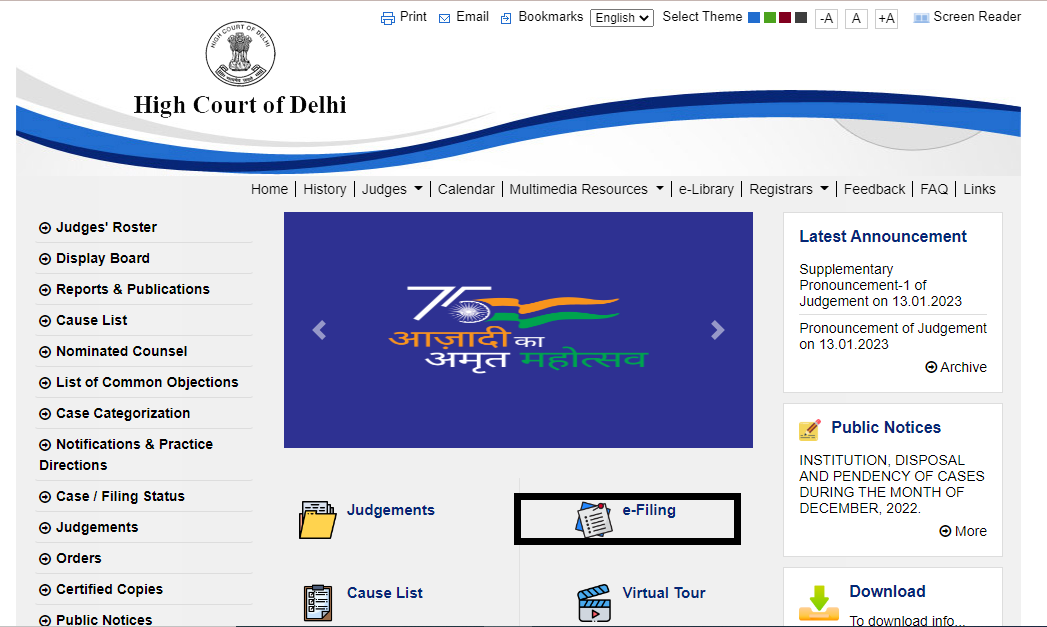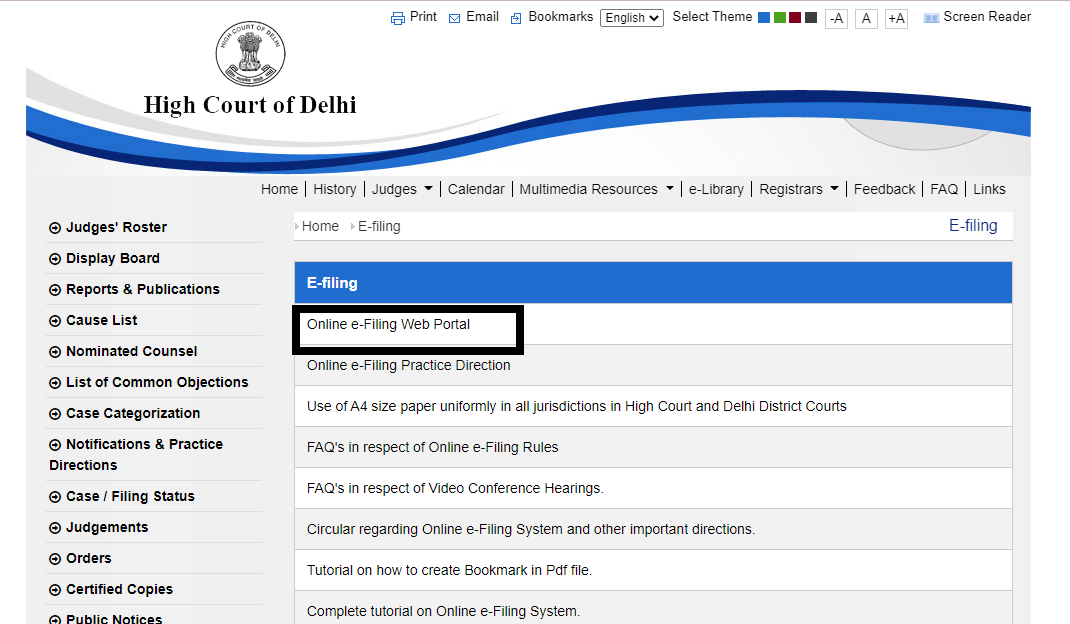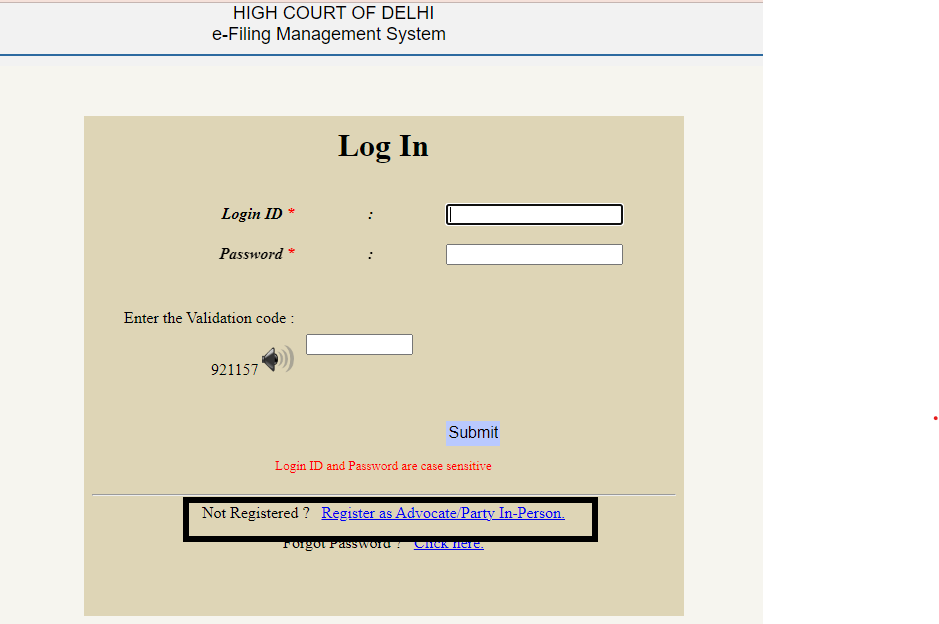Filing a caveat petition is a crucial task. Learn how to file a caveat online in the Delhi High court, right now!
This write-up clearly explains steps for filing a caveat petition online in the Delhi high court by advocates or as a party in person. With digitalisation at its peak appeals, petitions challenging Central administrative tribunal (CAT) rule, writing a petition, Public Interest Litigation (PIL), original suit, intervention petition, impleadment petition, MA, Caveat, etc can be documented online in Delhi High Court through its website.
The petition can be documented by an advocate or party in person. All the steps involved in the documentation of a petition with the Delhi High Court are discussed in this report.
What Is a Caveat Filing
Caveat is a Latin term that was used in the 16 century, which means ‘let a person beware’. A caveat petition is a preventative measure taken by people, usually when they are suspecting that they may be subjected to any legal action in the court or any case that may be filed against them.
In law, particularly in probate, it may be comprehended as a notice that particular efforts may not be seized without instructing the person who filed the caveat report. A caveat may act as an indication. It is provided under Section 148A in the Civil Procedure Code of 1908 by the permissions of the Law Commission of India’s 54 Report and was inaugurated by the CPC (Amendment 104) Act of 1976.
The term ‘Caveat’ is not distinguished in the code. The court had well-defined caveat’s terms. They said that ‘A Caveat is attention/caution or warning that was provided by a person to the court in a condition not to accept any activity or subsidy relief to the other side without paying for an opportunity of hearing him and without providing notification to the caveator.
How to File Caveat Online in Delhi High Court
Follow the instructions given below to file a caveat online.
- Go to the browser on your computer and visit the website of the Delhi High Court or type http://delhihighcourt.nic.in/
- Click the ‘e-filling’ button

- Press the online ‘e-filing web portal’

- If you are not registered with the website, you need to register
- Press the option ‘register as advocate/ party in person’

Register as an Advocate
Now if you are an advocate, make sure to have the bar council ID or certificates in a scanned PDF format.
- Click Register as an advocate
- Fill in all the credentials which are asked to fill in the page
- Upload a document of bar council ID number or certificate
- Enter the verification code shown on the screen
- Now click the ‘Register‘ button to register.
Register as a Party in Person
Now in case you are a party in person, make sure to have a scanned copy of your ID proof. follow these steps given below.
- Click on the ‘Register as an advocate/party in person’
- Press the ‘party in person’
- Fill in all the important information which is required
- Upload the ID proof or certificate copy
- Enter the verification code shown on the screen.
If you find this process highly complex you can always reach out to our experts at Vakilsearch. When it comes to a caveat petition we are the best and can help you in just three steps!
When Is a Caveat Filed and Why Do People File Caveats?
A caveat is filed when the caveator doubts some judicial effort which is against him by another party in the future. There are various motives for filing a caveat, some of these are:
- To explain the caveator’s address
- To position on the report, his goal is to immerse in the procedures
- To deter any ad-interim rule or order from being upheld without his attention to protect his case
What Are the Documents Required for Filing a Caveat
A civil suit includes numerous methods and involves different types of reports, petitions, or requests. Many documents are presented before the court, and documents of these articles must be furnished by the opposing parties in a suit. Two such statements are legal notices and caveat petitions.
A caveat petition and legal notice are published as per the methods described in the Civil Procedure Code, 1908. However, there are differences between a legal notice and a caveat petition. Section 148A of the Civil Procedure Code, 1908 includes the requirements for a caveat petition. A caveat petition is documented by an individual to the court, asserting that if someone documents a petition against him/her, the court must publish notice of such petition to the person filing the caveat.
- Completely Filled Index
- Application to document the caveat signed by Advocate on Record (AOR) including the second agenda. Those are as follows:-
- Name of The Court Disputed From
- Case Number And problem Title
- Vakalatnama And Memo of Appearance
- Court Expenses (Applicable In Civil Matters)
- Nomination of The Authority
- Date of Impugned Judgment
Advantages of Filing a Caveat
Assigning the best lawyer as per your situation and case is one of the best advantages in itself. However, there are a few more advantages of filing a Caveat petition which are as follows:-
- At every proceeding of the filing, you will be notified of the caveat and petition details till the end
- A caveat protects the caveator’s benefit. The caveat is now prepared to face the suit or proceedings which are banked upon to be inaugurated by the adversary
- No ex-party rule must be enforced against the caveator from this time forth since the caveat avoids a variety of methods
- It protects the expenses, payments, and amenities of the courts in this manner. It saves the expense of the caveat too
- The Court might not provide any ‘ex-parte interim order’ to the opponent party without hearing from the caveator if the opposition party registers methods for the provisional rules
- The order is unenforceable if the order is executed without notifying the caveator.
How Vakilsearch Can Help in Filing a Caveat Petition
Vakilsearch has the best team of attorneys. As soon as you reach out to us, our expert lawyers will get in touch and will draft your document within 4 days. Our team will take care of the entire paperwork filing and the documents required for filing the petition. The experts at Vakilsearch will provide holistic support for you. Reach out to us right now!
Read more:-




